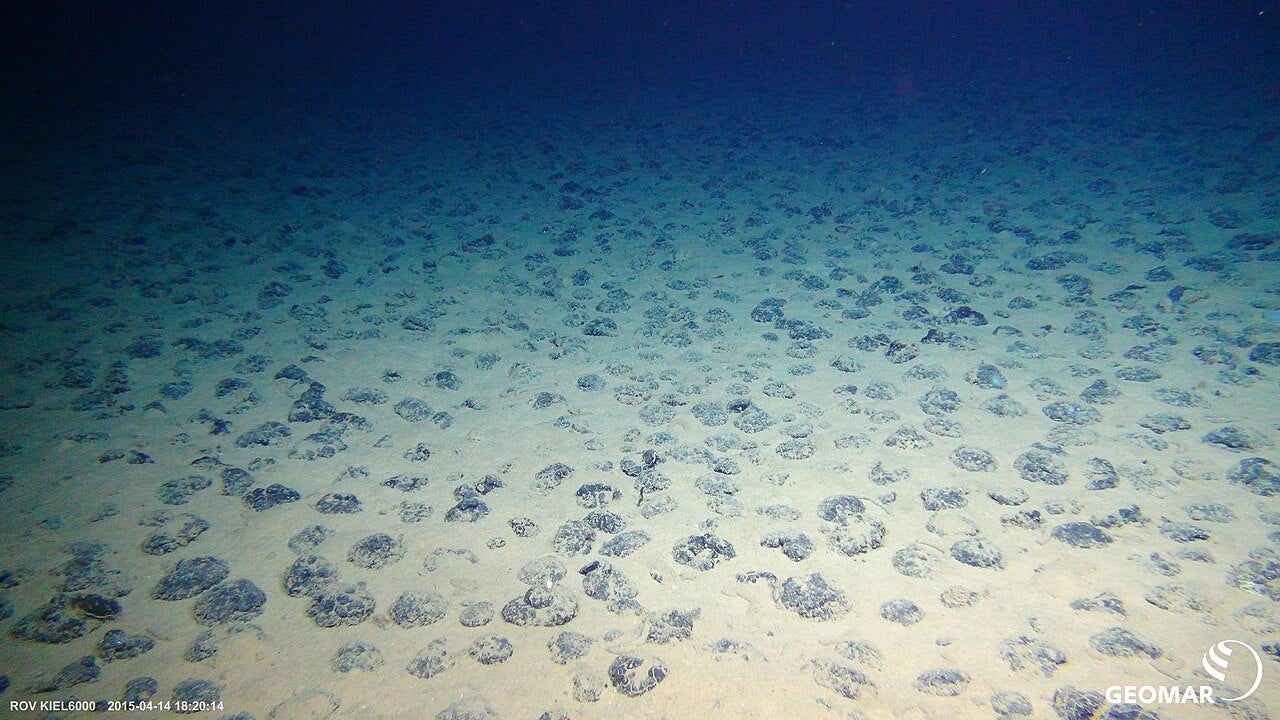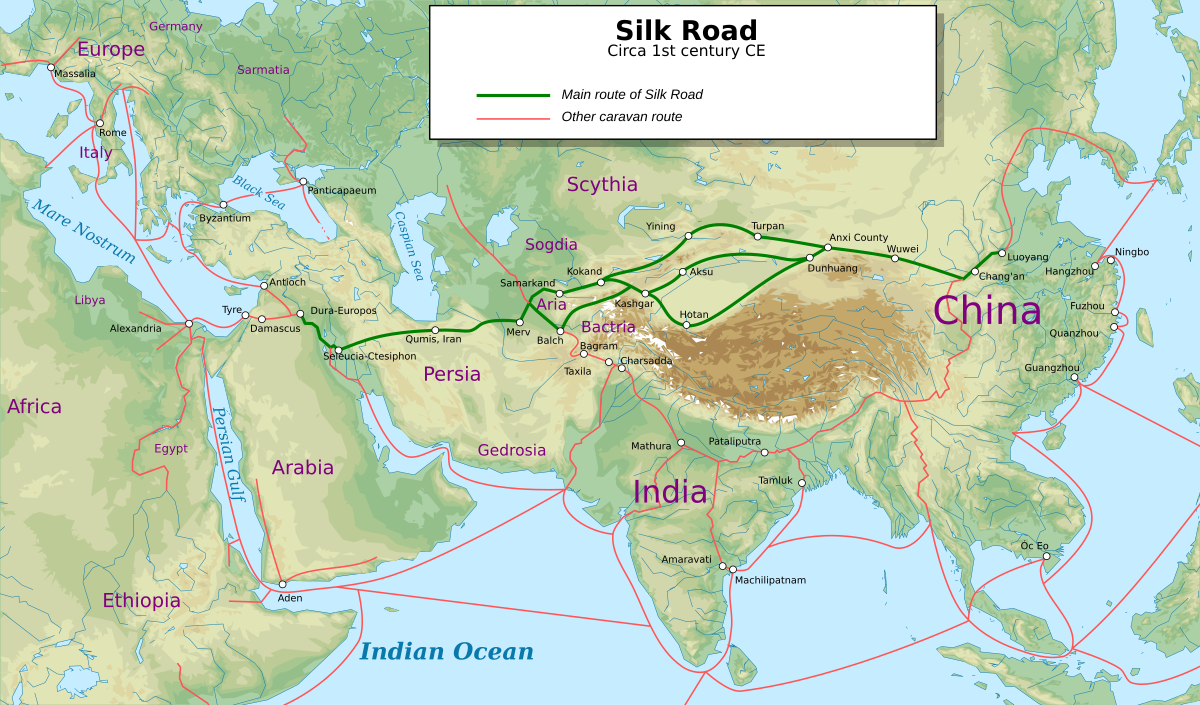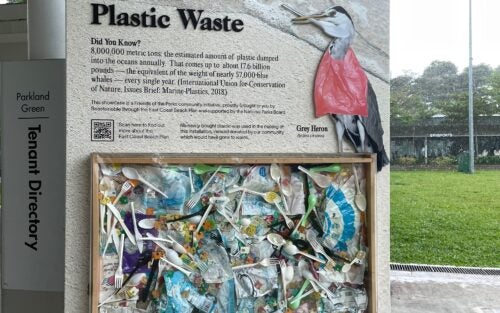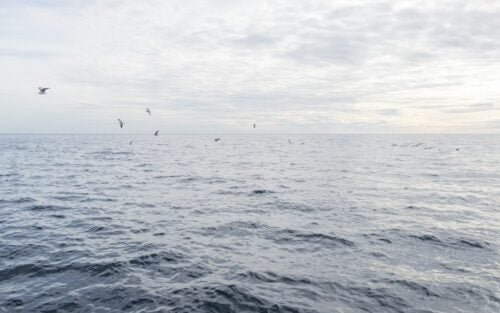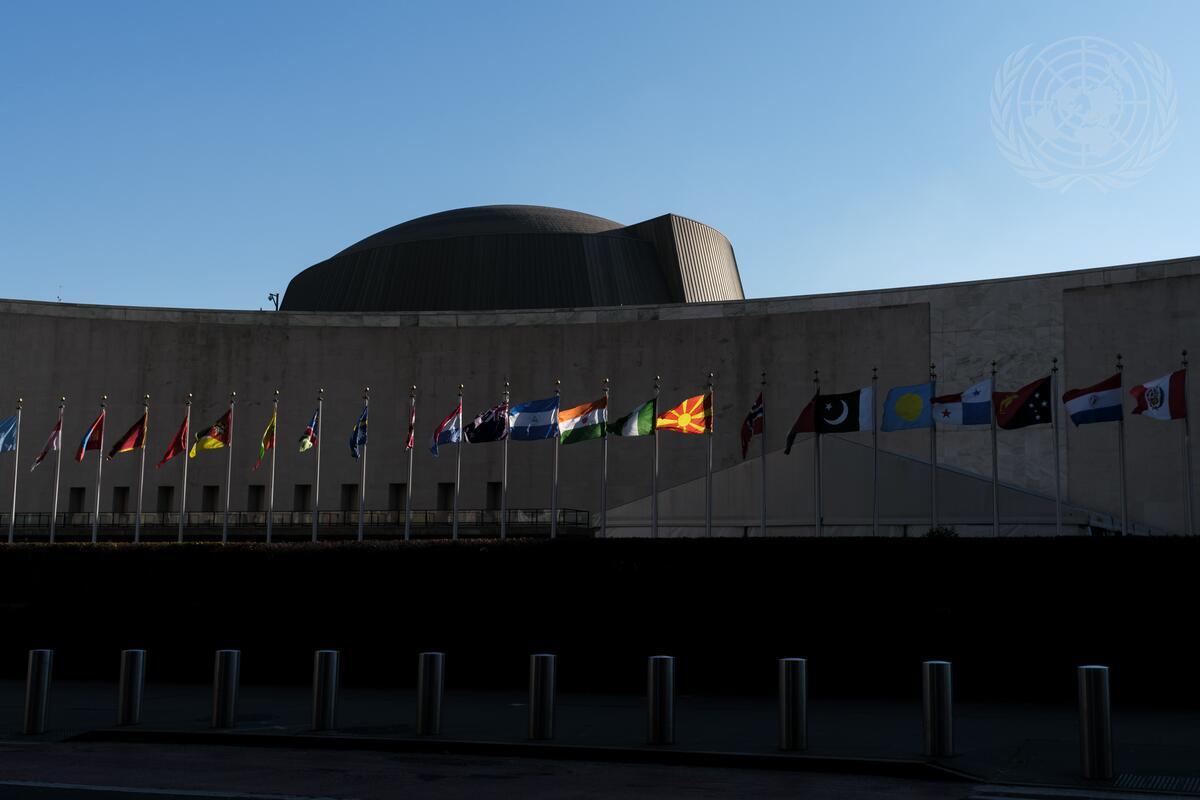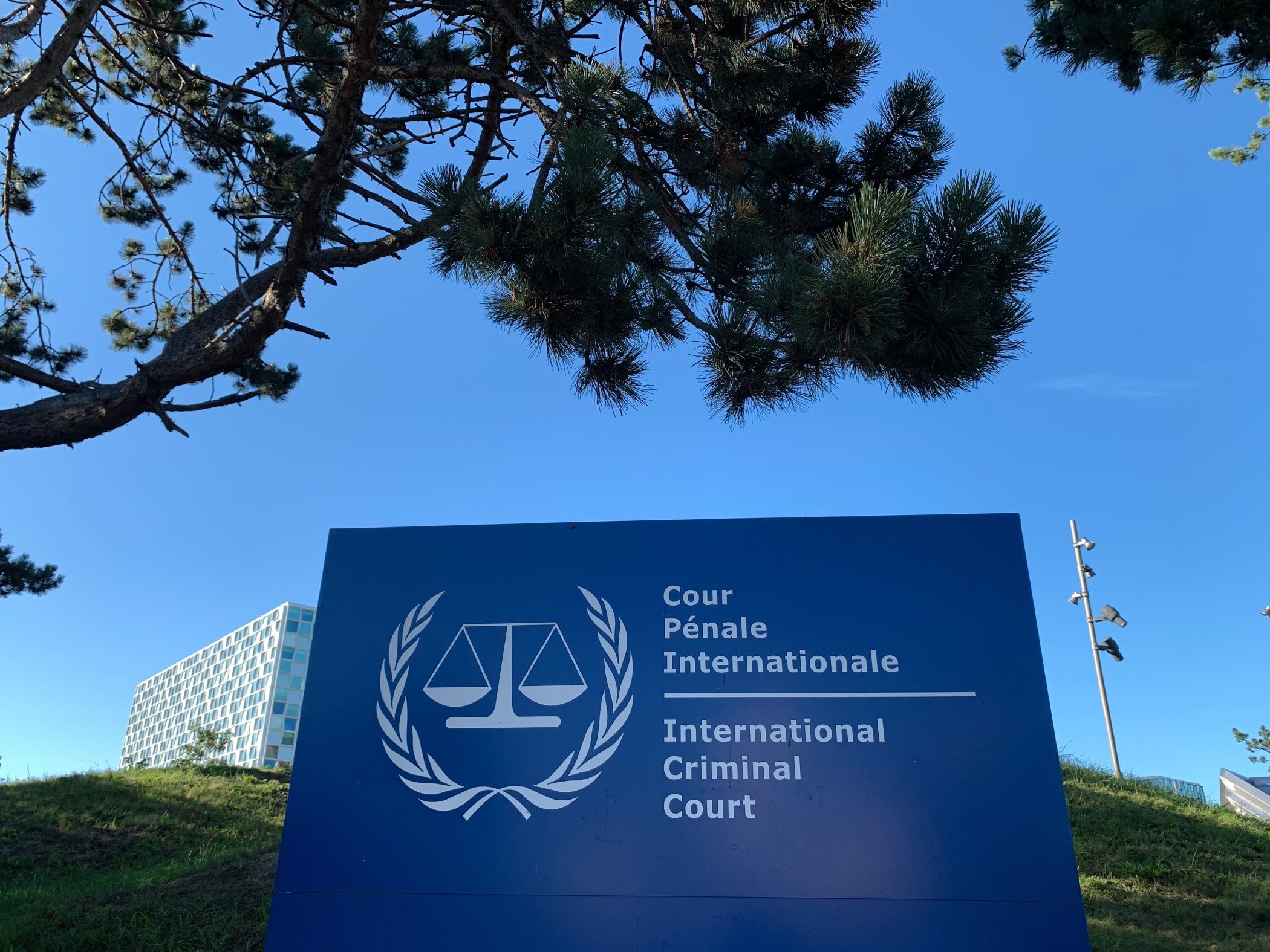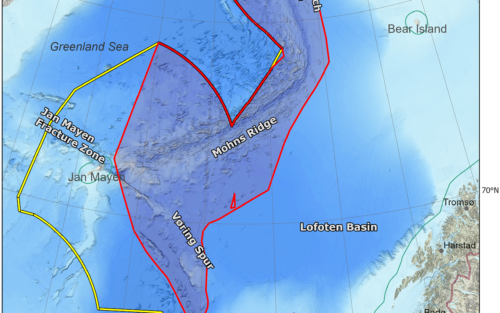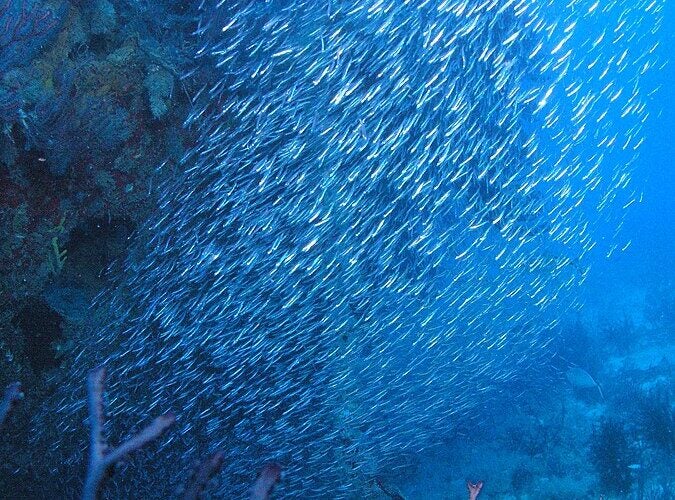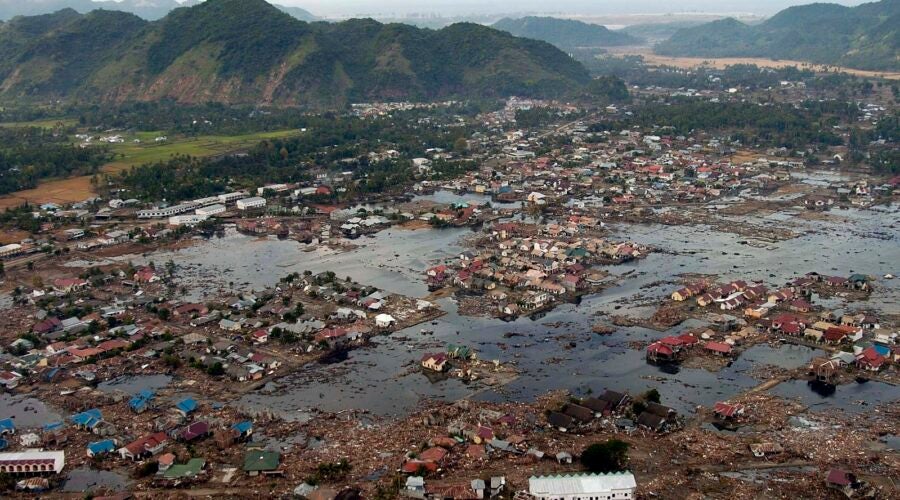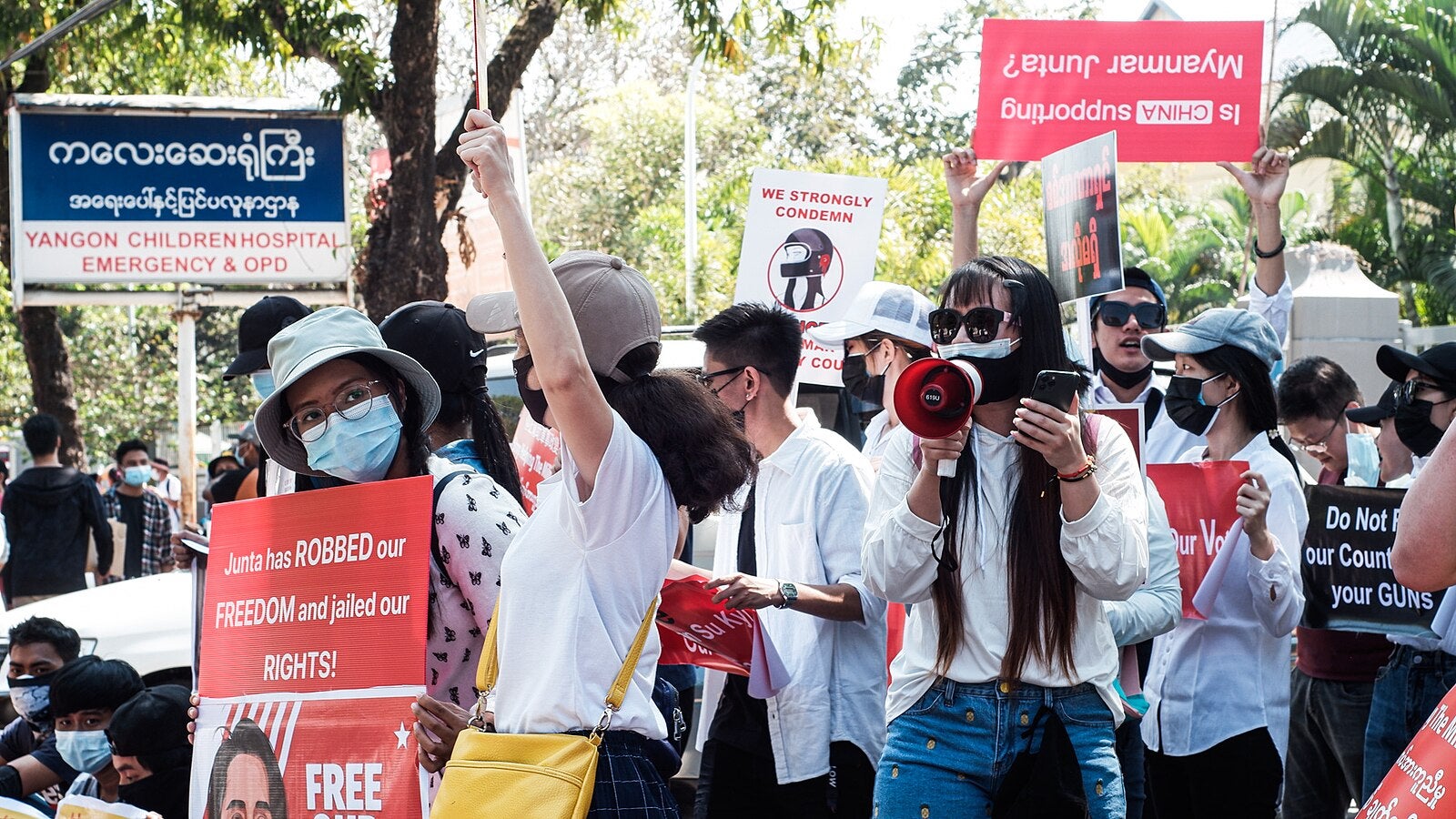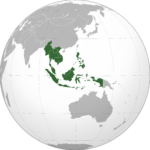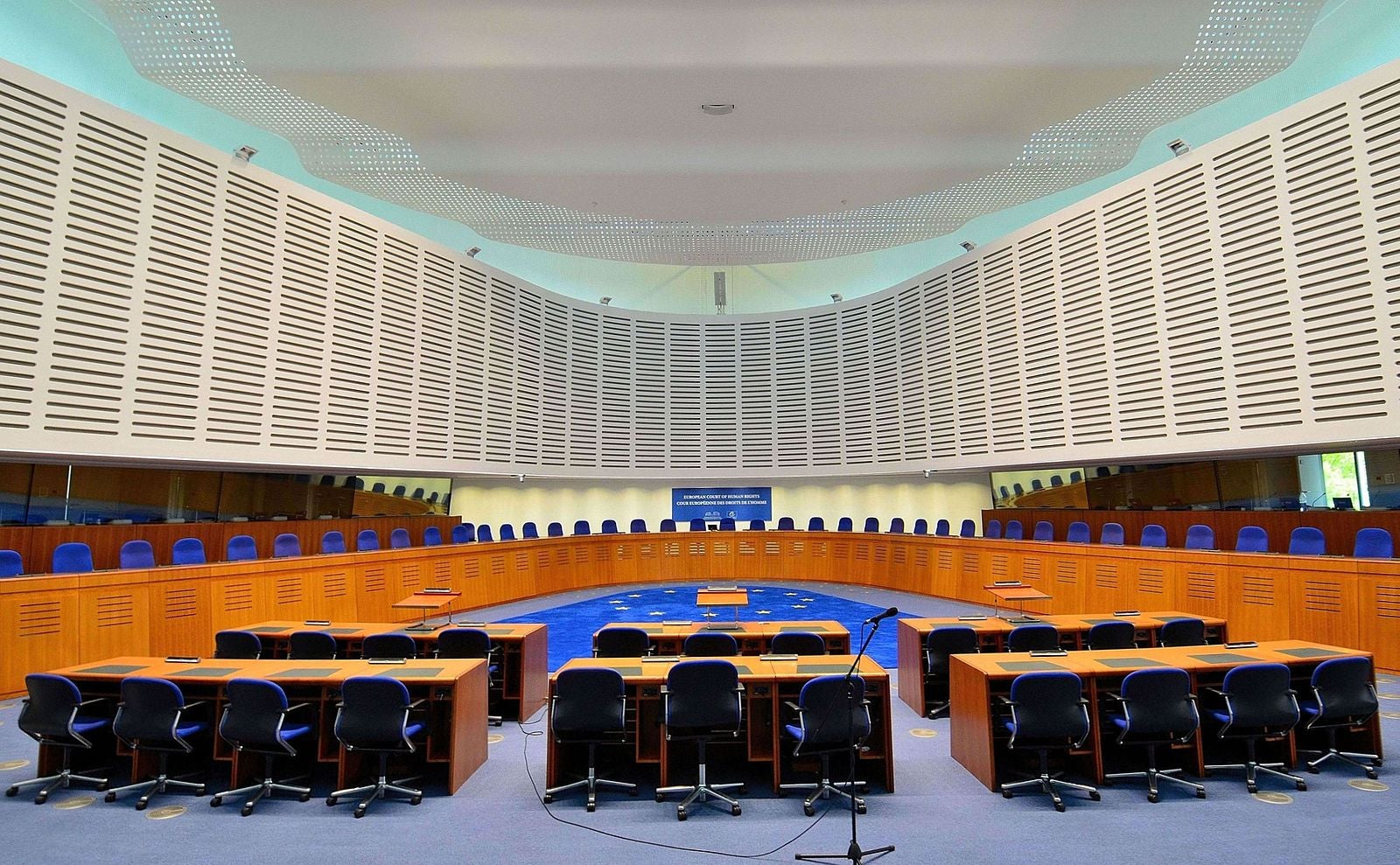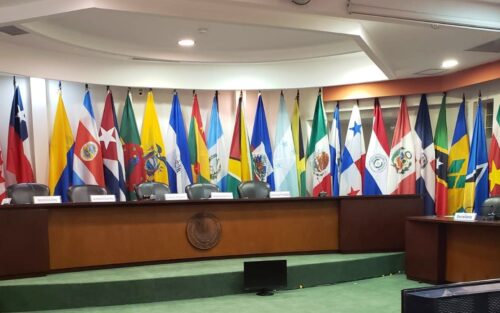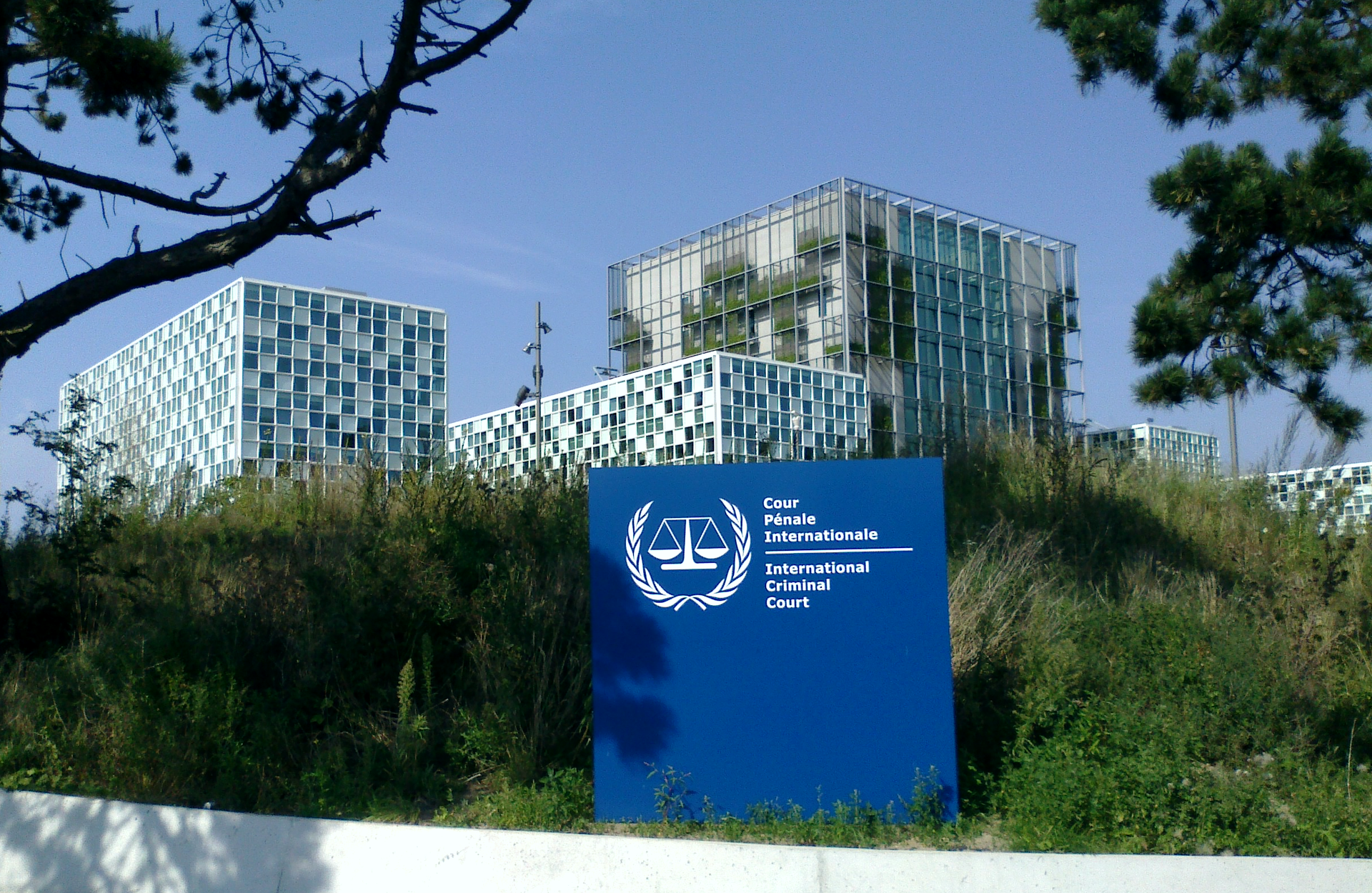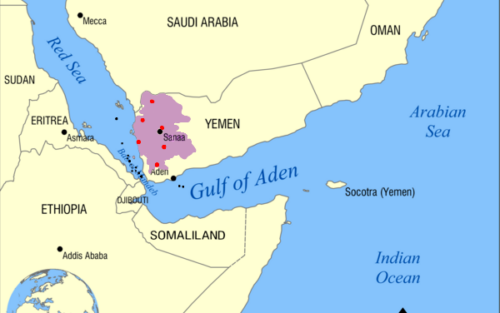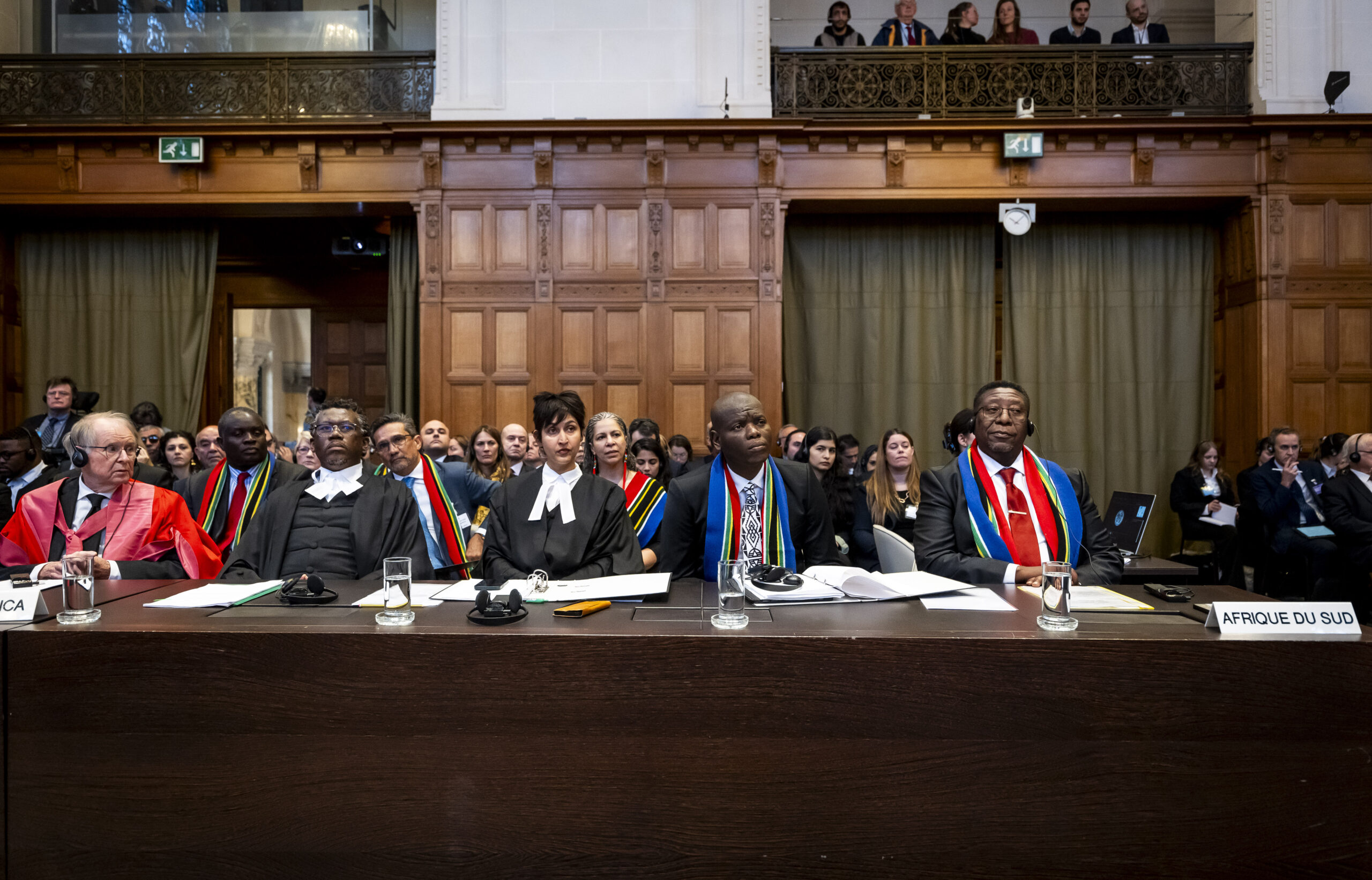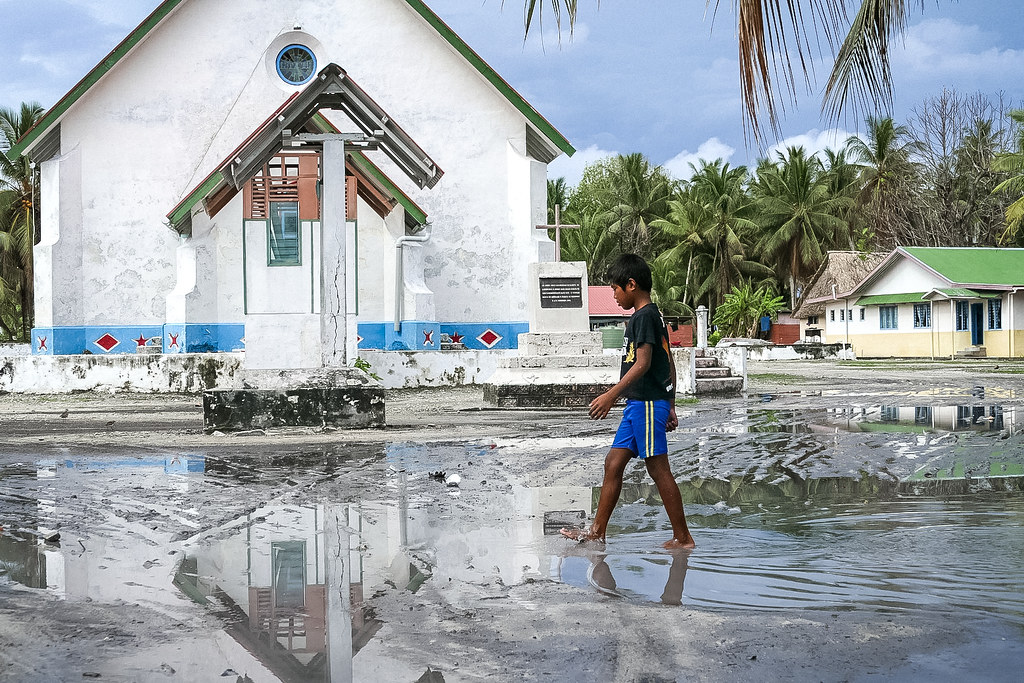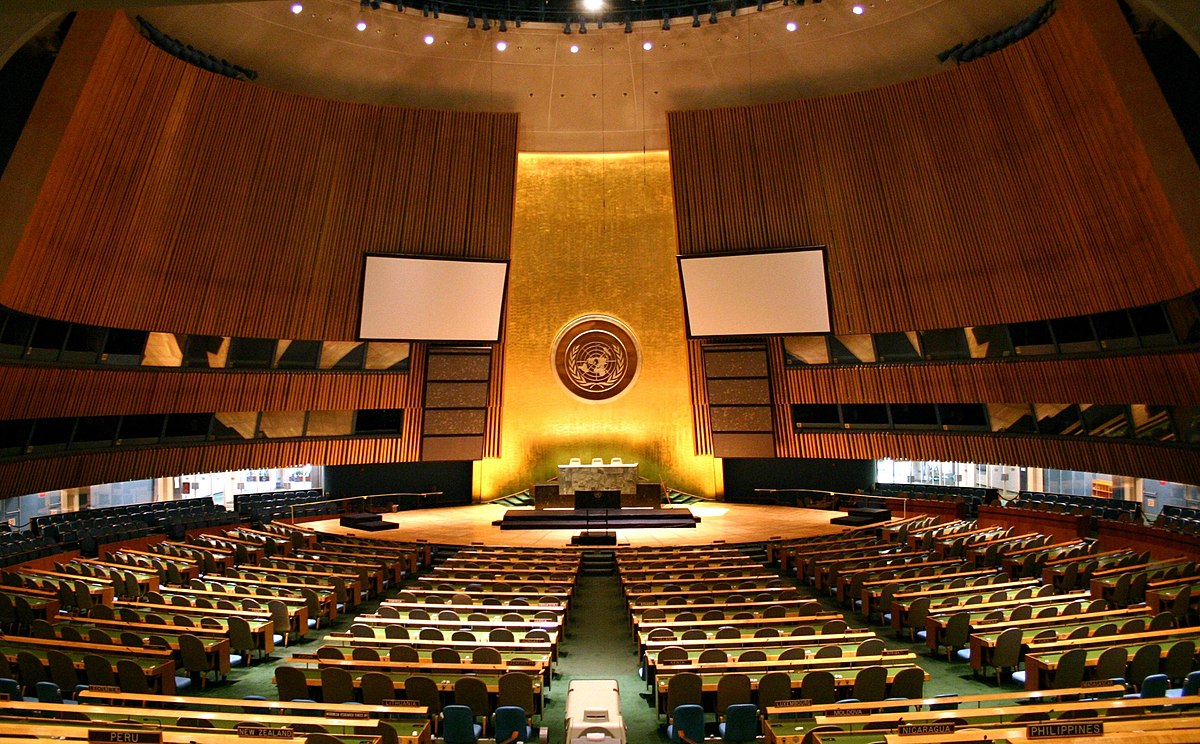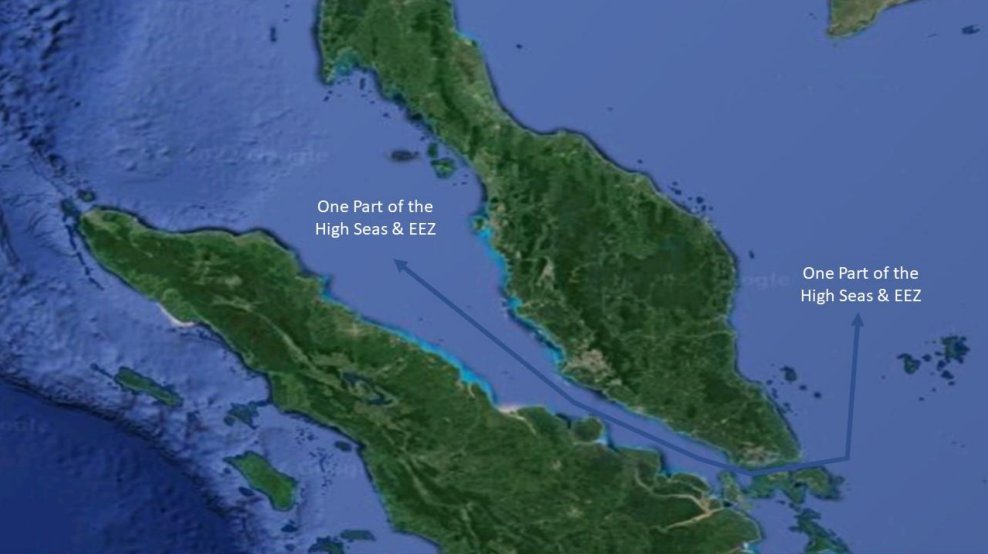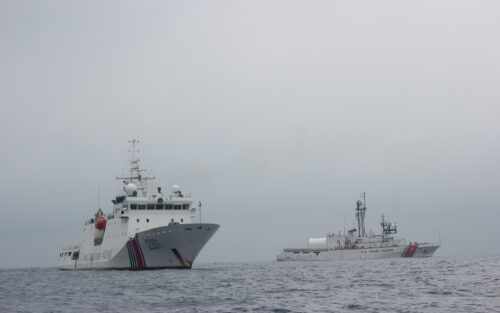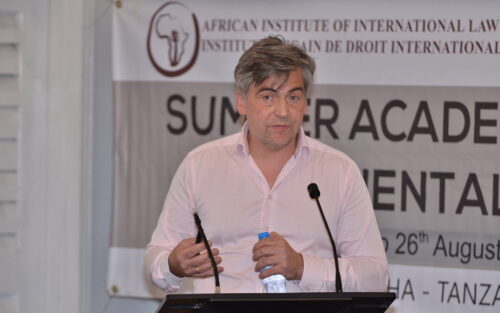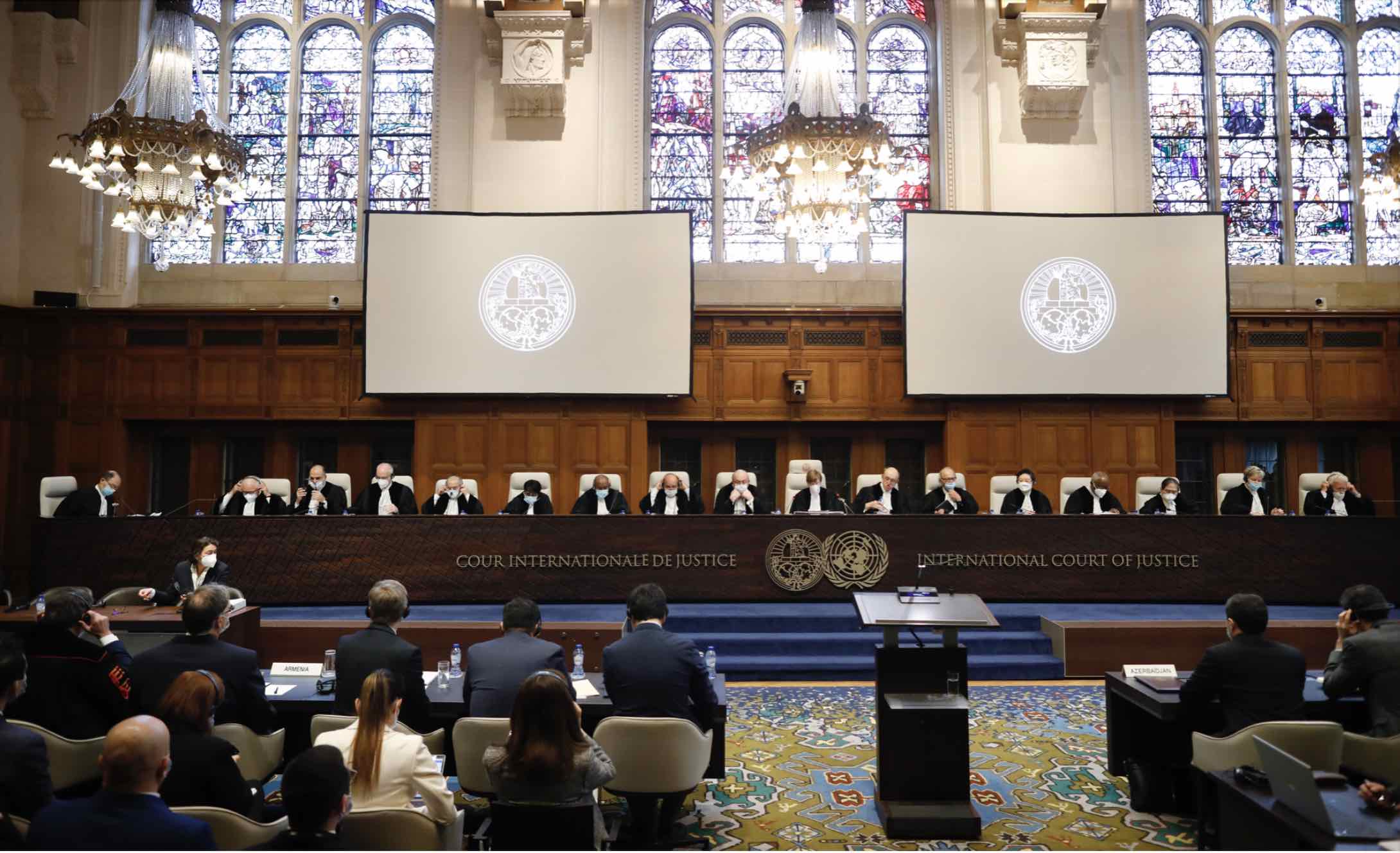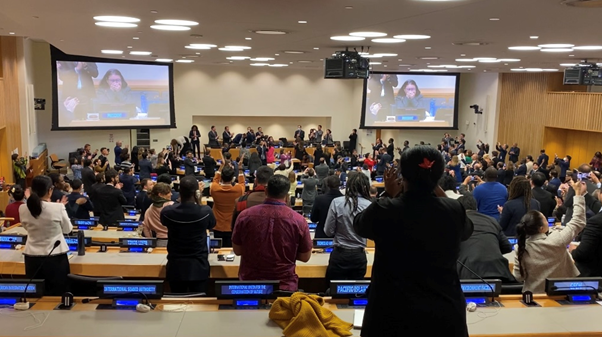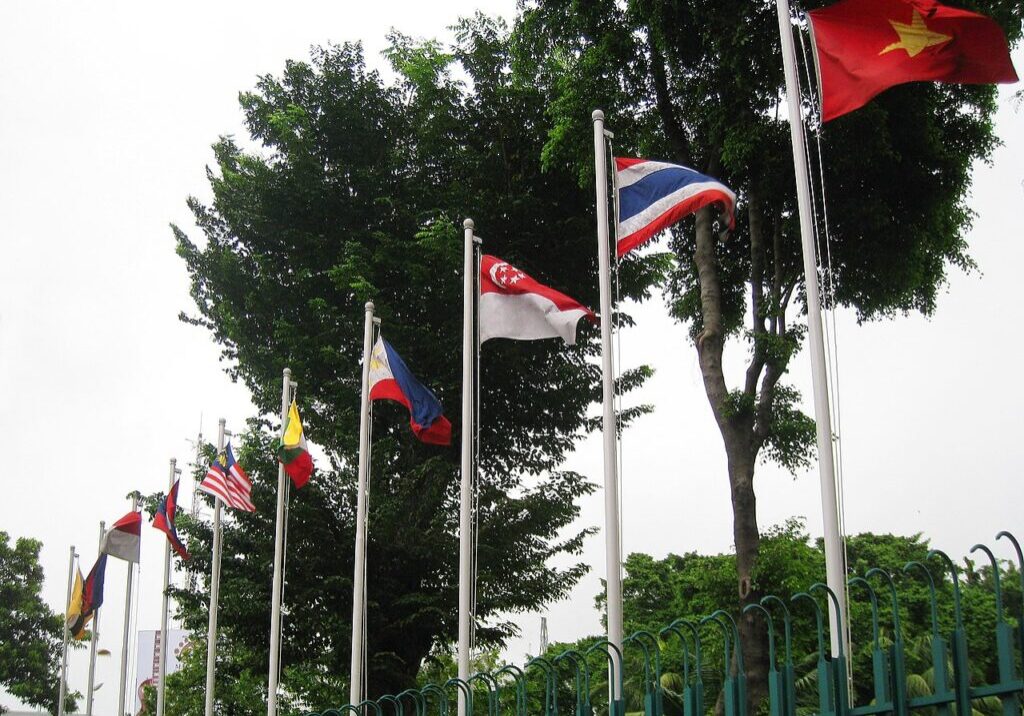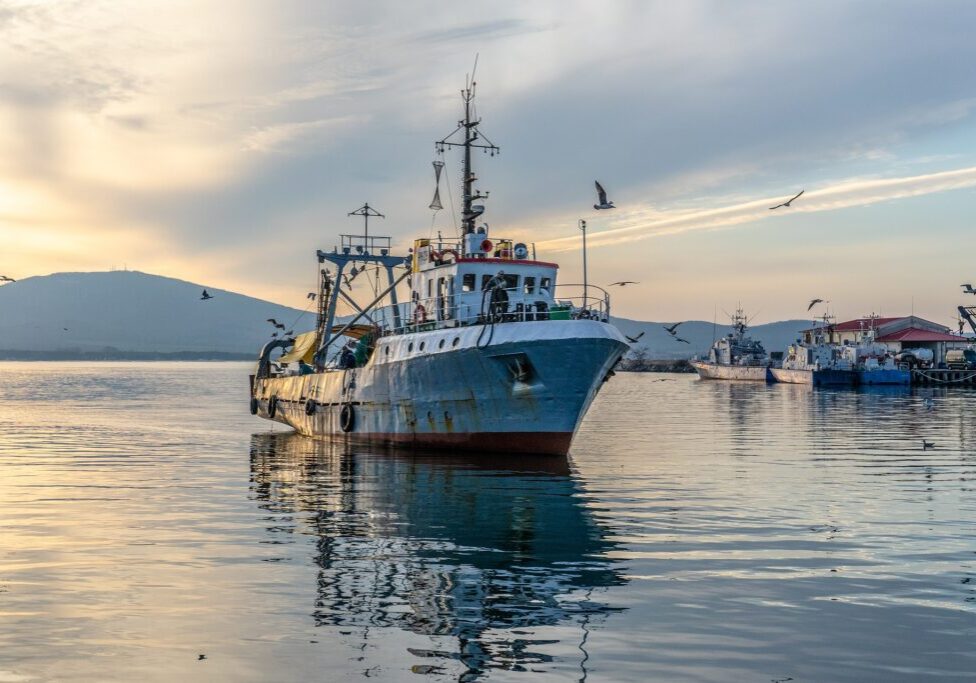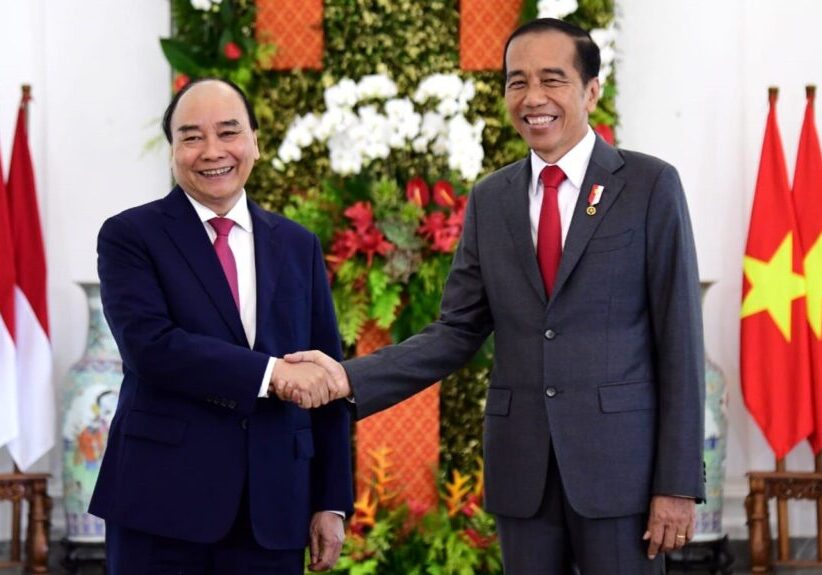CIL Dialogues Interventions
Published on 18 February 2026
The ISA’s approach to equitable benefit sharing: Is there room for the common heritage of mankind?
by Kristine Gu
The 1982 United Nations Convention on the Law of the Sea (UNCLOS) was drafted before states were capable of earnestly commencing deep seabed mining (DSM) activities. The wealth to be unlocked by DSM came with the risk of creating interstate conflicts (para 91). Access to mineral resources in seabed areas beyond national jurisdiction, namely what was to become the Area under Article 1(1) of UNCLOS, could not go unfettered. The common heritage of humankind principle, championed by scholars like Elisabeth Mann Borgese and famously proposed in 1967 by Maltese Ambassador Pardo to the United Nations (UN) General Assembly, was adopted to address these realities.
Published on 29 January 2026
What Trump’s Intervention in Venezuela reveals about International Law
by Alexandra Hofer
On 3 January 2026, the US used force against Venezuela to kidnap its head of state, Nicolas Maduro, and his wife, Cilia Flores. The intervention marks the cumulation of the US desire for regime change in Venezuela and for control over the country’s oil—goals that have been openly discussed by officials and representatives over the years. John Bolton transparently wrote about pursuing regime change in Venezuela during his time as national security advisor. Read on ...
Published on 23 January 2026
Threats of Force under Article 2(4): From Abstraction to Practice
by Davit Khachatryan
Trump’s recent statements on the use of power are striking for their candour. The usual diplomatic language and legal justifications are largely absent. In the aftermath of the illegal use of force in Venezuela, he has again turned to Greenland, reviving the idea that the United States should secure ownership and indicating that different options remain on the table. The underlying message is that the United States’ policy is being articulated in terms of capability and strategic preference. Read on ...
Published on 6 January 2026
International Law on the Silk Road: Towards a New Methodological Paradigm
by Sergey Sayapin
For several decades, international legal scholarship has been marked by a growing awareness of the limits of its canonical narratives. Critical and postcolonial approaches have exposed the Eurocentric foundations of the discipline, the structural inequalities embedded in its doctrines, and the historical silences that continue to shape its conceptual vocabulary. Yet even as scholars interrogate international law’s intellectual architecture, the field still tends to narrate its origins and evolution through a familiar Western genealogy: Westphalia, the European balance of power, positivism, colonial expansion, and the eventual universalisation of a post-1945 legal order. Read on ...
Published on 11 August 2025
by Liu Yulu
Plastic pollution has been found in places as high as the Himalayas and as deep as the Mariana Trench. Moreover, microplastics have been discovered in human bodies. Plastics can release toxic chemicals, enter food chains as microplastics, disrupt ecosystems and threaten biodiversity. In addition, plastic pollution poses serious transboundary threats, as it can easily cross borders through rivers, the sea, and global trade of plastic products and waste (see here and here). Read on ...
Published on 1 September 2025
Filling the Gap in Liability and Compensation for Alternative Fuel Spills from Ships
by Joel Ong
The shipping industry is betting big on alternative fuels for its energy transition. Based on the 2024 orderbook, over 1700 vessels have been ordered with alternative fuel propulsion capabilities (with a more than 50% increase in 2024). These ‘future fuels’, which serve as alternatives to fossil-fuels, are critical if the International Maritime Organization (IMO) is to deliver on its 2023 GHG Strategy of reaching net‑zero GHG international shipping emissions ‘by or around 2050.’ Read on ...
Published on 29 August 2025
The AANZFTA Upgrade: The Three New Chapters (Part 2)
by Miguel Jaime Encarnacion
The second installment of this series discusses electronic commerce (e-commerce) under the Agreement Establishing the ASEAN-Australia-New Zealand Free Trade Area (AANZFTA). Focusing on regulatory aspects, this blog follows its development from the original 2009 AANZFTA to its Second Protocol which entered into force on 21 April 2025. Despite institutional improvements and increased interactions with existing ASEAN legal instruments, concerns persist regarding its implementation and business utilisation among various stakeholders, including micro, small, and medium enterprises (MSMEs). Read on ...
Published on 14 August 2025
The ICJ Advisory Opinion and the Energy Transition Mandate
by Dr Mohammad Hazrati
Finally, the long-awaited Advisory Opinion of the International Court of Justice (ICJ) on the obligations of States regarding climate change has been delivered. The Opinion exceeds expectations and can confidently be described as a turning point, not only in international climate change and environmental law but also in related fields such as international energy law. It is also expected to have a substantial and positive impact on climate action and the acceleration of energy transition initiatives. Read on ...
Published on 11 August 2025
by Priya Urs
The International Court of Justice (ICJ, the Court), in its advisory opinion Obligations of States in Respect of Climate Change, issued on 23 July 2025, comprehensively addressed the first question posed to it by the UN General Assembly by identifying a range of obligations of states in respect of climate change (question (a)). In contrast, the Court devoted far fewer words to answering the second question asked of it, that is, in the Court’s understanding of the question Read on ...
Published on 22 July 2025
Seven Groundbreaking Insights from the Inter-American Court’s Climate Advisory Opinion
by Dr Mohammad Hazrati
On May 29, 2025, the Inter-American Court of Human Rights (IACtHR) delivered its Advisory Opinion OC-32/25, requested by Chile and Colombia, addressing States’ obligations to respond to the climate emergency within the framework of international human rights law. This landmark opinion represents a watershed moment in the global recognition of the deep connections between climate change, environmental protection and human rights. Read on ...
Published on 9 July 2025
The AANZFTA Upgrade: The Three New Chapters (Part 1)
by Miguel Jaime Encarnacion
The Second Protocol to Amend the Agreement Establishing the ASEAN-Australia-New Zealand Free Trade Area (AANZFTA) entered into force on 21 April 2025. Regarded as one of ASEAN’s most progressive Free Trade Agreements (FTAs), it is the latest milestone in the partnership of ASEAN, Australia, and New Zealand—one which began with negotiations to link the ASEAN Free Trade Area and the Australia–New Zealand Closer Economic Relations Trade Agreement. Read on ...
Published on 23 June 2025
by Jakub Handrlica
Nuclear power plants (NPP, NPPs) generate approximately half of Ukraine’s electricity. There are two reactors at the Khmelnytskyi NPP, four reactors at the Rivne NPP, three reactors at the South Ukraine NPP, and six reactors at the Zaporizhzhia NPP. Zaporizhzhia NPP is considered the largest NPP in Europe and among the ten largest in the world. Read on ...
Published on 23 June 2025
by Yavuz Arda Yakut and Anaïs Rémont
On 29th April 2025, The Metals Company (‘TMC’), a Canadian-based deep-sea mining firm, announced that it had officially applied for exploration licenses and commercial recovery permits following the Executive Order of the US on 24th April 2025, which calls for creating a system for US companies to locate and access offshore critical minerals and resources in marine areas beyond national jurisdiction. Read on ...
Published on 16 May 2025
Coercion without Invasion: Trump, Greenland, and the Erosion of International Law
by By Janakan Muthukumar
In a recent and troubling development in global affairs, U.S. President Donald Trump has once again revived his ambition to acquire Greenland—this time with a sharper, more coercive tone. What was once presented as a transactional real estate proposition has morphed into a narrative of entitlement and strategic necessity. Read on ...
Published on 26 April 2025
by Ana Paula Lavalle Arroyo and Sergio E. Delgado Fernández
A previous contribution to this journal, here chronicled the complex uphill process that culminated in the adoption of General Assembly resolution 79/122 (2024), which broke a five-year stalemate in the Sixth Committee to set in motion a long-overdue process toward negotiating a convention on the prevention and punishment of crimes against humanity. Read on ...
Published on 21 April 2025
Breaking the impasse: towards a new convention to prevent and punish Crimes against humanity.
by Pablo Arrocha Olabuenaga and Natalia Jiménez Alegría
The mandate on the progressive development and codification contained in article 13 of the UN Charter has historically been a priority for Mexico. This has been reflected in its active participation and engagement in the work of the International Law Commission (ILC) and the General Assembly’s Sixth Committee (6C). Read on ...
Published on 11 April 2025
Duterte in the Hague tests Philippine engagement with international criminal law
by Ruby Rosselle L. Tugade
The dramatic circumstances surrounding Rodrigo Duterte’s arrest and extradition to the Hague last month for alleged crimes against humanity generated various discussions on his arrest’s propriety under the legal regime of the International Criminal Court (ICC). Read on ...
Published on 7 April 2025
by Digvijay Rewatkar
As the politics of climate change oscillates between its striking effects and denialism, the global energy, technological industry and minerals supply chains have been under a shift. For instance, the projected growth of AI datacentres, expansion of renewable energy projects and electric vehicles, and increasing defence applications, all portend towards a rise in the demand of minerals such as copper, nickel, cobalt, lithium, rare-earth elements etc. Inevitably, geopolitical competition is also sharpening for the access to minerals. Read on ...
Published on 4 April 2025
Sudan v. United Arab Emirates: Short-lived but Meaningful?
by Juliette McIntyre
Since 2013, Sudan has faced a catastrophic civil war between the Sudanese Armed Forces and the paramilitary Rapid Support Forces (‘RSF’). In 2024, the RSF was accused of committing genocide in respect of its attacks against the Masalit people in West Darfur. These acts of genocide, forcible displacement, and murder committed by the RSF are now the subject of proceedings at the International Court of Justice. Somewhat unexpectedly, on 5 March 2025 Sudan accused the United Arab Emirates (‘UAE’) of multiple violations of the Genocide Convention by reason of complicity in RSF activities. Read on ...
Published on 4 April 2025
by Eduardo Cavalcanti de Mello Filho
On 27 March 2025, The Metals Company (TMC), a Canadian company, announced that its US subsidiary will apply for exploitation permits under the US 1980 Deep Seabed Hard Mineral Resources Act (DSHMRA) (here). This move is controversial, since it seeks a unilateral alternative to the system established by the 1982 UN Convention on the Law of the Sea (UNCLOS), as implemented by the 1994 Agreement on UNCLOS Part XI, which regulates activities in the international seabed Area (the “Area”) through the International Seabed Authority (ISA). Read on ...
Published on 11 March 2025
International Fisheries as the ‘Whale in the Room’ at the BBNJ Negotiations
by Ethan Beringen
The successful conclusion of the negotiations for the new treaty on the conservation and sustainable use of marine biodiversity beyond national jurisdiction (BBNJ) was a significant achievement in international law making. This is especially the case given the divisions over key issues such as the status of marine genetic resources and the relationship between the new instrument and ‘…relevant legal instruments and frameworks and relevant global, regional, subregional and sectoral bodies…’ (IFBs), particularly the requirement that the new instrument should ‘not undermine’ these IFBs. Read on ...
Published on 10 March 2025
by Lucía Solano
In what constituted a historic moment for the codification and progressive development of international law, and for the Sixth Committee of the United Nations General Assembly (UNGA) in particular, the UNGA adopted by consensus Resolution A/C.6/79/L.16 which delineates the route to the negotiations on a Convention on the Protection of Persons in the Event of Disasters on the 6th of December 2024. In the next paragraph we will briefly describe what were the steps that led to this significant achievement, ... Read on ...
Published on 2 March 2025
Non-recognition of Unconstitutional Changes of Government: From African Union to ASEAN
by Dr Trung Q.T. Nguyen
In the pre-dawn hours of 1 February 2021, military vehicles rolled into Myanmar’s capital Naypyidaw. Senior civilian leaders were detained, and by sunrise, the Tatmadaw had declared a state of emergency, effectively terminating the country’s democratic transition.
While much legal discourse has focused on questions of governmental recognition—as both the State Administration Council (SAC) and National Unity Government assert their right to represent Myanmar— ... Read on ...
Published on 2 March 2025
Timor-Leste’s Upcoming Membership to ASEAN: Clearer Guidance Needed
by Johan Pahlepi
Since its establishment in 1967, the Association of Southeast Asian Nations (ASEAN) has been vital in enhancing regional stability through its unique political, security, economic and socio-cultural integration. Over the years, the membership of the organisation has grown considerably beyond the initial five countries—Indonesia, Malaysia, the Philippines, Singapore, and Thailand—to now include ten member states, following the accession of Brunei Darussalam, Viet Nam, Lao PDR, Myanmar and Cambodia. Read on ...
Published on 23 January 2025
by Hélène Tigroudja
In a very detailed judgment of almost 200 pages and more than 500 paragraphs, a Chamber of the European Court of Human Rights (the ‘Court’) elaborated on the States’ positive obligations to protect life under Article 2 of the European Convention of Human Rights (‘ECHR’) in case of long-standing and ‘ongoing diffuse pollution’ (para. 299) caused by waste dumping and in particular, ‘a large-scale practice of burying toxic, industrial, and generally hazardous waste.’ Read on ...
Published on 23 February 2025
by Adam Strobeyko
Access and Benefit Sharing (ABS) promotes the sharing of resources and information essential for scientific research and development (R&D), along with associated benefits such as monetary or in-kind contributions, data access, intellectual property rights, scientific collaborations, and capacity building. ABS seeks to address equity issues surrounding some of the most prominent challenges of our time, including biodiversity loss and pandemics ... Read on ...
Published on 8 February 2025
by Jon Truby
The US President’s announcement of flagship $500 billion Stargate AI project with OpenAI was trumped a day later by a little-known Chinese start-up, DeepSeek, which shocked the tech world and wiped $1 trillion off the value of the stock market in a day. Silicon Valley technology companies have invested heavily in AI technologies reliant upon AI microchips and hardware that are typically power-hungry, to such an extent that data centres now emit 1% of global energy-related greenhouse gas emissions. ... Read on ...
Published on 21 January 2025
by Kei Nakajima
On 12 November 2024, the International Court of Justice (‘the Court’) delivered two judgments on preliminary objections raised by Armenia and Azerbaijan in two cases, respectively, brought against each other. While the jurisdictional basis for these was the International Convention on the Elimination of All Forms of Racial Discrimination (‘CERD’), both cases stem from the armed hostilities between the two countries and constitute part of the international lawfare launched against each other ... Read on ...
Published on 18 January 2025
by Diego Uribe Bustamanter
Last 18 November 2024, the Inter-American Court of Human Rights (IACtHR or ‘the Court’) published a landmark decision in the case of Pueblos Rama y Kriol, Comunidad Negra Creole Indígena de Bluefields and others v. Nicaragua. The Court ruled (at 460) that Nicaragua failed to protect communitarian property and consult indigenous peoples. It also found that settler´s presence and non-traditional economic activities violated the right to a healthy environment under Article 26 of the American Convention. Read on ...
Published on 16 January 2025
by Danielle Yeow and Railla Puno
The concept of just transition originated in the 1970-1980s when North American trade unions developed a framework to protect the jobs of workers in industries that were impacted by new air and water pollution regulations. Read on ...
Published on 15 January 2025
Addressing the Criticisms against the United Nations Convention against Cybercrime
by Nguyen Thanh Trung
Cybercrime is a crisis brought about in the digital age. A recent report by the United Nations Office on Drugs and Crime (‘UNODC’) estimates financial losses between US$18 billion and US$37 billion from cyber scams targeting victims in East and Southeast Asia in 2023 alone. Read on ...
Published on 3 January 2025
Key contentions at the Hearings on the ICJ Advisory Opinion on climate change
by Danilo B. Garrido Alves and Efstathios-Effraim Giannidakis
Between 3 and 13 December, over 100 States and international organisations appeared before the International Court of Justice (some of which—such as Barbados, Sierra Leone, the Cook Islands, Micronesia, Nepal, the Dominican Republic, Samoa, and Uruguay—for the first time in history) ... Read on ...
Published on 11 December 2024
The ICC arrest warrants in the Palestine Situation: double standards, limitations and opportunities
by Alessandra Spadaro
On 21 November 2024, Pre-Trial Chamber I of the International Criminal Court (ICC) issued the first arrest warrants for crimes committed in the Situation in the State of Palestine. The warrants of arrest for Israeli Prime Minister Benjamin Netanyahu and former Israeli Minister of Defence Yoav Gallant concern charges of war crimes and crimes against humanity. Read on ...
Published on 18 November 2024
Milieudefensie et al. v. Shell: Analysis and Commentary of the Hague Court of Appeal’s Decision
by Jolene Lin
On 12 November 2024, the Hague Court of Appeal handed down its much-anticipated decision in Milieudefensie et al. v. Shell (commonly referred to as the ‘Shell climate case’). The case revolves around the question: Is Shell required by law to reduce its carbon dioxide (CO2) emissions by 45% by 2030 relative to 2019 levels? In 2021, the Dutch District Court had answered ‘Yes’. In overturning the District Court’s ruling, the Court of Appeal’s answer was ‘No’. Read on ...
Published on 15 November 2024
Benefit v Consent: CJEU’s Front Polisario II Judgment and the Law of Self-Determination
by Andrea Maria Pelliconi and Jed Odermatt
On 4 October 2024, the Grand Chamber of the Court of Justice of the European Union (CJEU) found that fisheries and trade agreements concluded between the European Union (EU) and the Kingdom of Morocco violated international law (Front Polisario II). This is because these agreements apply with respect to goods originating in Western Sahara. The territory has been included in the United Nations (UN) list of Non-Self-Governing Territories since Spain added it in 1963. Read on ...
Published on 5 September 2024
by Pallavi Arora
The advent of biotechnology has raised concerns about biopiracy: the utilization of biological resources and traditional knowledge without permission from or compensation to the local communities who are the rightful custodians of these resources and knowledge. Over time, this issue has acquired a North-South dimension. Read on ...
Published on 15 July 2024
Missed opportunities: WIPO Treaty falls short of protecting Traditional Knowledge
by Kriti Sharma
On May 24, 2024, twenty five years of negotiations culminated in the World Intellectual Property Organization’s (WIPO) Diplomatic Conference adopting its first treaty on Intellectual Property, Genetic Resources and associated Traditional Knowledge (“the treaty”). Developed as a conciliatory effort of the WIPO Intergovernmental Committee on Intellectual Property and Genetic Resources, Traditional Knowledge and Folklore (WIPO IGC), this instrument was drafted by former Chair Ian Goss in 2019. Read on ...
Published on 23 May 2024
Legality of Cyber Operations in the Israel-Hezbollah War
by Mr Hussein Badreddine
In the aftermath of the 7 October 2023 attack conducted by Hamas and other Palestinian factions, Israel claimed the right of self-defence and began a widespread operation in the Gaza strip. On 8 October 2023, Hezbollah launched rockets into three posts in Shebaa farms, ostensibly in solidarity with the Palestinian people. The Shebaa farms were occupied by Israel in the six-day war in 1967. However, the status of these farms remains unresolved, and no border demarcation between Syria and Lebanon has taken place to this day. Officially, Lebanon made a claim to this land on 4 May 2000. Read on ...
Published on 24 April 2024
by Dr. Jaroslav Krasny
The Biological Weapons Convention National Implementation Database (“BWC Database”), developed collaboratively by the United Nations Institute for Disarmament Research (UNIDIR) and the Verification Research, Training and Information Centre or VERTIC, serves as a resource for understanding and supporting the implementation of the Biological Weapons Convention (BWC). This new database compiles information on how State Parties meet their obligations under the BWC. Read on ...
Published on 4 April 2024
by Kim Anh Dao
The Association of Southeast Asian Nations (ASEAN) holds a significant position in the international investment rule-making arena. Alongside treaties concluded by its individual members, ASEAN, as a unified entity, has been actively involved in various cross-regional investment agreements, including the ASEAN-Korea Investment Agreement (2009), the ASEAN-China Investment Framework Agreement (2009), the ASEAN-India Investment Agreement (2014), and the Regional Comprehensive Economic Partnership (RCEP) (2020). Read on ...
Published on 18 March 2024
by Robert Beckman, Trung Nguyen and Joel Ong Jie Hao
At its thirty-third biennial meeting on 6 December 2023, the Assembly of the International Maritime Organization (‘IMO’) adopted Resolution A.1192(33) urging Member States and all relevant stakeholders to promote actions to prevent illegal operations in the maritime sector by the ‘dark fleet’ or ‘shadow fleet’ (‘the 2023 Resolution’). Read on ...
Published on 14 March 2024
Artificial Intelligence And Article 33.4 VCLT
by Tarcisio Gazzini
Artificial intelligence (AI) is set to radically change legal education and the legal profession. Suffice it to mention the administration of justice through machines. This comment focuses on a much more specific issue, namely the interpretation of multilingual treaties. Article 33.4 of the Vienna Convention on the Law of Treaties, in particular, directs the interpreter in overcoming differences between equally authoritative texts. Read on ...
Published on 19 February 2024
Does breaching UNCLOS invoke the right of self-defence?
by Shani Friedman
Since October 2023, as part of the Israeli-Hamas war following the October 7 massacre in Israel, the Houthis – an Iranian-backed Yemeni terrorist group – attacked commercial ships in the Gulf of Aden and the Red Sea in support of Hamas. The attacks range from non-violent boarding and rerouting of ships to using missiles and drones. Read on ...
Published on 6 February 2024
China’s engagement with the ITLOS climate change advisory proceedings and its strategic formalism in international law
by Ryan Martínez Mitchell
Several months ago, Beijing decided to take a stand against the expansion of advisory opinion jurisdiction to the full International Tribunal for the Law of the Sea (ITLOS), as well as the potential use of such jurisdiction to define climate change obligations under the law of the sea. Read on ...
Published on 23 January 2024
Israel, South Africa and the Power of Genocide
by Yusra Suedi
The International Court of Justice (ICJ, the Court) has increasingly been the theatre for accusations of the crime of genocide. The latest instalment is South Africa’s institution of proceedings against Israel for committing genocide in the Gaza Strip. Read on ...
Published on 8 January 2024
by Rashmi Raman and Daniel Pakpahan
The Falepili Union Treaty of 9 November 2023 is making waves across reports that comment on the intriguing and possibly trailblazing agreement on climate change cooperation (among others) between Australia and Tuvalu. Article 2(2)(b) of the treaty, in particular, is an important development in respect of state practice on recognising the continued existence of geographically threatened states from climate induced sea level rise (SLR). Read on ...
Available on 4 December 2023
by Professor Eirik Bjorge, Dr Nilüfer Oral
The year 2023 has been marked by an unprecedented number of requests for advisory opinions concerning climate change and State obligations under international law. This includes the request from the UN General Assembly to the International Court of Justice (ICJ) initiated by Vanuatu on Obligations of States in respect of Climate Change. Climate change represents a case par excellence where legal analysis needs to be informed by science. Read on ...
Published on 29 November 2023
Identifying Legal Gaps in International Humanitarian Law Governing Peace Operations
by Varun VM
This post highlights the importance of identifying legal gaps in international humanitarian law (IHL) applicable to peacekeeping operations. It explores the complexities of peacekeeping, including the multidimensional nature of missions and the challenges associated with distinguishing combatants from non-combatants. Additionally, it emphasises the need for a comprehensive review of IHL to address the evolving dynamics of peacekeeping and ensure the protection of personnel involved in peace operations. Read on ...
Published on 14 November 2023
Four new judges and one re-elected at the ICJ: an election of firsts
by Dr Massimo Lando
On 9 November 2023, the UN General Assembly and Security Council held election to fill five upcoming vacancies on the International Court of Justice (ICJ). These five seats will become vacant on 6 February 2024, when President Donoghue (United States of America) and Judges Bennouna (Morocco), Charlesworth (Australia), Gevorgian (Russian Federation) and Robinson (Jamaica) will end their respective terms. Read on ...
Available on 16 August 2023
IPEF’s Supply Chain Agreement: Much Ado?
by Celine Lange
In May 2023, exactly one year after its official launch in Tokyo, the Indo-Pacific Economic Framework (IPEF or Framework) reached a significant milestone as US authorities released a press statement announcing the substantial conclusion of the negotiations on supply chains under IPEF Pillar II [the IPEF comprises three other pillars: Pillar I (Trade); Pillar III (Clean Economy); and Pillar IV (Fair Economy)]. While concluding these negotiations within a year represents in itself an achievement, tangible outcomes are yet to be seen as the Supply Chain Agreement will be finalised after ‘further domestic consultations and a legal review’ by the IPEF partners. As the mantra goes ‘nothing is agreed until everything is agreed.’
Published on 14 August 2023
Prof Robert Beckman’s Reply to CIL Dialogues’ Blog Post by Mohd Hazmi Mohd Rusli of 7 August 2023
by Professor Robert Beckman
Reply and Rejoinder to “Prioritizing the Marine Environment: A Possible Malaysian Recharacterization of the Strait of Malacca to Regulate the Passage of Nuclear-Powered Submarines”
Published on 14 August 2023
Japan-Pacific Islands Countries Cooperation on Maritime Law Enforcement
by Yurika Ishii
On 16 May 2023, Japan signed and exchanged Notes on the Project for Strengthening Capacity of Maritime Law Enforcement Agencies for Effective Maritime Crime Control in the Pacific Island Countries with Fiji, Kiribati, the Marshall Islands, the Federated States of Micronesia (FSM), Nauru, Palau, Solomon Islands, Tuvalu and Vanuatu. At the same time, Japan and the United Nations Office on Drugs and Crime (UNODC) entered into a funding agreement valued at $US 6 million. The primary aim of this accord is to enhance measures against maritime crime in the nine Pacific Island Countries and Territories (PICTs).
Published on 7 August 2023
Prioritizing the Marine Environment: A Possible Malaysian Recharacterization of the Strait of Malacca to Regulate the Passage of Nuclear-Powered Submarines
by Mohd Hazmi Mohd Rusli
Maritime traffic passing through the Straits of Malacca and Singapore, two of the world’s busiest shipping ways, has been consistently increasing over the years. With the rise of China’s military capacity against the might of the forces of the United States and its allies, passage of military vessels via these crucial straits is anticipated to increase, including passage of nuclear-powered submarines. As the main maritime conduit connecting the Pacific Ocean—via the South China Sea—to the Indian Ocean, the significance of this maritime link is indisputable.
Published on 13 July 2023
Canada and the Netherlands Institute ICJ Proceedings Alleging Violations by Syria of the Convention against Torture
by Priya Urs
Other significant developments in recent weeks (see e.g. here and here) have perhaps overshadowed the joint institution by Canada and the Netherlands of contentious proceedings against Syria before the International Court of Justice (ICJ) in respect of alleged violations of the 1984 Convention against Torture and Other Cruel, Inhuman or Degrading Treatment or Punishment (‘CAT’, ‘the Convention’). Read on
Published on 12 June 2023
What’s Next if the South China Sea Code of Conduct Negotiations Fail?
by Aristyo Rizka Darmawan
The ASEAN-China South China Sea Code of Conduct (CoC) negotiations have resumed and picked up pace after the COVID-19 pandemic restrictions eased. Despite the optimistic statements expressed by ASEAN leaders and that Indonesia as the incumbent chair of ASEAN has been pushing the negotiations forward, the CoC instrument that aims to ensure and maintain peace and security in the disputed area is still far from being concluded. This is due to the diverse claimant and non-claimant state positions. ... Read on
Published on 29 May 2023
Exercise of Jurisdiction or Admissibility? Delimitation of Outer Continental Shelf (Part I)
by Bjørn Kunoy
This is the first part of a total of two posts that endeavour to pursue a critical analysis of the reasoning underlying courts’ and tribunals conclusions for delimiting overlaps of outer continental shelf entitlement claims in the absence of recommendations of the Commission on the Limits of the Continental Shelf (CLCS) with some focus on the most recent decision on this particular question: the judgment of 28 April 2023 on the merits by the Special Chamber of the International Tribunal for the Law of the Sea (ITLOS) in the Dispute concerning delimitation of the maritime boundary between Mauritius and Maldives in the Indian Ocean (Mauritius/Maldives).
Published on 1 June 2023
Exercise of Jurisdiction or Admissibility? Delimitation of Outer Continental Shelf (Part II)
by Bjørn Kunoy
Conflicting approaches in Jurisprudence
With the recent judgment of the Special Chamber in Mauritius v. Maldives there are now five decisions addressing the merits of questions regarding the delimitation of the outer continental shelf lacking CLCS recommendations. Another dispute is currently pending on the merits. These decisions show five different approaches as to whether the delimitation of the outer continental shelf lacking CLCS recommendations concerns the exercise of jurisdiction or admissibility. The recent decision of ITLOS in Mauritius/Maldives adds new elements and addresses the ´inconsistent jurisprudence` (p. 1) on this matter.
Published on 15 May 2023
Freedom of information, materials conditions, and the ICCPR’s stylistic choice
by Wanshu Cong
There is a growing interest in the international legal scholarship to study the materiality of international law. Termed as ‘new materialism’, this recent material (re)turn has animated inquiries which pay attention to concrete and specific objects. These studies consider how certain objects are governed directly or indirectly by or implicated in international law (for an example of this approach, see the volume International Law’s Object edited by Jessie Hohmann and Daniel Joyce).
Published on 25 April 2023
The Causal Question in the Application of the Law on the Use of Force to Cyber Operations
by Priya Urs
Multilateral discussions as to the international legal regulation of cyber operations evidence an emerging agreement amongst states that existing rules of international law apply to cyber operations. This principled agreement has variously materialised in reports of the UN Group of Governmental Experts, the UN Open-Ended Working Group and, somewhat exceptionally, in the national positions declared by some states. Yet there is no clear indication as to how existing rules of international law might apply to cyber operations, inviting deeper discussion of the substantive issues raised by the application of these rules to cyber operations.
Published on 24 April 2023
The BBNJ Agreement – new treaty, old challenges
by Shani Friedman
On March 4, 2023, the text of the international legally binding instrument under the United Nations Convention on the Law of the Sea (UNCLOS/ Convention) on the conservation and sustainable use of marine biological diversity of areas beyond national jurisdiction (BBNJ treaty/ ‘high seas’ treaty) was finalised (see the announcement here). The new ‘high seas’ treaty is considered a ‘breakthrough’ – the culmination of nearly two decades of work, building on the legacy of UNCLOS.
Published on 20 April 2023
Intervention and obligations erga omnes at the International Court of Justice
by Benjamin Salas Kantor and Dr. Massimo Lando
It is not too often that one attends a conference and witnesses an unexpected fine technical debate on the reading of the Statute of the International Court of Justice (ICJ). This year, it happened at the Annual Meeting of the American Society of International Law. In a session about multilateral litigation before the ICJ, held on 31 March 2023, some of the speakers offered conflicting views on Article 62 of the Court’s Statute. Article 62 concerns intervention and provides that ... read on
Published on 17 April 2023
The BBNJ Agreement: Links between the New and Existing Laws on Protecting Marine Biodiversity
by Nguyen Thanh Trung
4 March 2023 was a historic day for the international law of the sea. The United Nations International Conference on Marine Biodiversity of Areas Beyond National Jurisdiction (BBNJ), led by Ambassador Rena Lee of Singapore, agreed on the draft text of a new agreement under the United Nations Convention on the Law of the Sea 1982 (UNCLOS) on the conservation and sustainable use of marine biological diversity of areas beyond national jurisdiction (the BBNJ Agreement) ... read on
Published on 13 April 2023
Regime Interaction between Deep Sea Mining and the Conservation of Biodiversity in Areas Beyond National Jurisdiction
by Digvijay Rewatkar
The question of conservation and sustainable use of marine biological diversity of areas beyond national jurisdiction (BBNJ) in their current form have been under discussion since the 2015 recommendations of the Preparatory Committee vide UNGA 69/292. In 2018, the discussions were elevated to a formal body constituted vide UNGA 72/249 to the Inter-governmental Conference (IGC) under the auspices of the United Nations ... read on
Published on 11 April 2023
The final hours of a treaty negotiation
by Joanna Mossop
As I walk around the echoing corridors of the United Nations Conference Building basement, groups of people are huddled in corners, or sprawled out among the chairs in the closed ‘Vienna Cafe’, or are slumped in their chairs in Conference Room 2. One or two people are asleep, while others obviously wish they were asleep. A few blearily stare at their computers, pointing to words on a screen. Takeout food containers litter the tables. The standard greeting is ‘how are you doing?’ Or ‘have you managed to get any sleep?’
Published on 28 March 2023
First hearings in climate change cases before the European Court of Human Rights: tackling the victim status
by Celine Lange
In February 2023, the European Court of Human Rights (the ECHR or the Court) issued an update on the ‘status of climate applications’ pending before it. It had shortly before announced that the first public hearings in two of these cases would be held on 29 March 2023: Verein KlimaSeniorinnen Schweiz and others v. Switzerland (Verein) and Carême v. France (Carême). The hearings in the two cases will be held before the same composition of the Grand Chamber and, unusually, on the same day. As of March 2023, nine climate cases are pending before the ECHR and two applications were declared inadmissible in December 2022. The Climate litigation database lists an additional case concerned with freedom of expression, about which no ECHR public information is available.
Published on 17 March 2023
Piercing the glass ceiling at UNCLOS tribunals
by Dr Lan Nguyen
While there has been progress in certain international courts and tribunals, the fact remains that female judges or arbitrators still constitute only a small minority in the international bench. The United Nations Convention on the Law of the Sea (UNCLOS) dispute settlement bodies are no exception. While the number of female judges at the International Tribunal for the Law of the Sea (ITLOS) has increased, it still has one of the lowest percentages of female judges among permanent international courts. At the time of writing, 5 out of the Tribunal’s 21 judges are female, accounting for less than 25% of the bench.
Published on 15 March 2023
Navigating the Seas of Soft Law in the Implementation of the Law of the Sea Convention
by Dita Liliansa
This essay explores the role of regional soft law instruments in implementing the United Nations Convention on the Law of the Sea (UNCLOS) to protect endangered sea turtles and their habitats in Southeast Asia. The region boasts the highest concentration of marine species in the Indian and Pacific Oceans, and the Association of Southeast Asian Nations (ASEAN) has a long history of regional co-operation on marine environmental issues dating back to 1977. Despite the many pressing marine environmental concerns, Southeast Asia has placed considerable attention to sea turtle conservation, evidenced by the adoption of the ASEAN MOU on Sea Turtles, in addition to five other soft law instruments beyond ASEAN’s purview.
Published on 8 March 2023
Beyond a feminist approach to international law and diplomacy, reflections
by Celine Lange
On 15 February 2023, the first Singapore Roundtable on Women Leaders in International Law and Diplomacy (‘Singapore Roundtable’) was held, gathering more than 80 law practitioners, members of the diplomatic corps and associations’ representatives. This event was co-hosted by the Centre for International Law (CIL) and the Embassy of Ireland in Singapore. It aimed to bring together women and men in leading roles in international diplomacy and international law in Singapore, to discuss gender imbalance in these fields and future prospects, share experiences and highlight key challenges.
Published on 6 March 2023
Might It Just Work? How To Interpret Customary International Law (Maybe)
by Dr Massimo Lando
The feasibility of interpreting customary international law has been a matter of much academic debate. Essentially, this debate concerns whether customary rules can be objects of interpretation, which is a process to find out what they mean, as distinct from identification, which is the process to ascertain their existence.
Published on 22 February 2023
A hollow—and slightly homophobic—victory for LGBTIQ+ rights? Fedotova and others v Russia
by Professor Lucas Lixinski
The European Court of Human Rights’ (ECtHR) Grand Chamber consolidated its jurisprudence on the legal recognition of same-sex relationships in Fedotova and others v Russia (Fedotova). In doing so, it advances a key cause that has occupied, for better or worse, much of the time and energy of LGBTIQ+ advocates around the world. At the same time, the victory is somewhat hollow: Russia, although technically bound by the judgment, is unlikely to comply since it left the Court’s jurisdiction in the aftermath of the invasion of the Ukraine—and the Court’s technical reasoning is at times troubling—even if the overall outcome can be read as a positive.
Published on 8 February 2023
The Alibis of History, or How (not) to Do Things with Inter-temporality
by Dr Ntina Tzouvala
Efforts to confront the imperialist, colonial and racist foundations of contemporary wealth and prosperity in the capitalist West are often resisted by pleas not to judge historical practices against contemporary moral standards. This (dubious) argument also finds juridical expression in the international legal rules concerning inter-temporality. In a nutshell, the (il)legality of an act or an omission should be judged against the rules of international law that applied at the time that this act/omission took place and subsequent legal change does not affect this judgement. This is a rule with long historical pedigree going back to The Island of Palmas arbitration, a case concerning the rules applicable to the colonisation of inhabited lands by Western powers.
Published on 25 January 2023
Concordance Legalization as an Alternative Regional Trading Arrangement to the EU and USMCA Models: ASEAN’s Intergovernmental yet Dynamically Expansive Way
by Dr Tan Hsien-Li
This essay conceptualizes the Association of Southeast Asian Nations’ (ASEAN) integration model, which I term ‘Concordance Legalization’, in the regional trading arrangement landscape that holds two prevalent contrasting models epitomized by the European Union (EU) and the United States–Mexico–Canada Agreement (USMCA) that replaces the North America Free Trade Agreement (NAFTA). Concordance Legalization may offer sovereignty-centric states a ‘third way’ to regionalize dynamically whilst retaining intergovernmental preferences.
Published on 17 January 2023
The World Trade Organization Fisheries Subsidies Agreement: A Critical Assessment on the Impacts to Developing Fishing Nations and the Way Forward
by Dr Trung Nguyen
The Fisheries Subsidies Agreement of the World Trade Organization (‘the Agreement’) was adopted at the 12th Ministerial Conference in June 2022 as part of the so-called ‘Geneva Package’. Soon after its adoption, the long-awaited Agreement was praised by WTO member states, international organizations and NGOs as a landmark instrument in curbing subsidies provided to the fishery sector to promote sustainable fishing practices in line with Sustainable Development Goal 14 of the United Nations.
Published on 12 January 2023
What does the Indonesia–Vietnam EEZ Agreement mean for the region?
by Aristyo Rizka Darmawan
On the 23rd of December, during Vietnamese President Nguyen Xuan Phuc’s visit to Jakarta to meet President Joko Widodo, Indonesia and Vietnam finally signed an Exclusive Economic Zone (EEZ) delimitation agreement after 12 years of long negotiations. Indeed, maritime delimitation agreements between States have normally taken many years to conclude. However, the recent EEZ agreement between Indonesia and Vietnam is important since it has implications for the region, especially China and Malaysia.
Published on 10 November 2022
A first look at the Indo-Pacific Economic Framework: What’s in it for Indo-Pacific participants, and can it succeed? (Part 1)
by Celine Lange
In February 2022, the President of the United States announced the launch of a new Indo-Pacific Strategy, characterised as heralding a US re-engagement with the region, which would lead to ‘a multilateral partnership for the 21st century’. A central part of this re-engagement was unveiled in May 2022 by President Biden at the ASEAN-US Special Summit: the Indo-Pacific Economic Framework (IPEF or Framework).
Published on 10 November 2022
A first look at the Indo-Pacific Economic Framework: What’s in it for Indo-Pacific participants, and can it succeed? (Part 2)
by Celine Lange
Part 2 of the blog series on the Indo-Pacific Economic Framework (IPEF), launched in May 2022 by President Biden, examines the possible benefits of the Framework for its Indo-Pacific participants, as well as its potential implementation difficulties. It is argued that the IPEF may not have much to offer economically to most of its Indo-Pacific participants, and that its regional impact could remain limited, owing to the IPEF’s opt-in structure, the relative shallowness of its commitments, and the lack of an enforcement mechanism.
Published on 4 November 2022
Climate Litigation and the Limits of Legal Imagination: A Reply to Corina Heri
by Benoit Mayer (Associate Professor, The Chinese University of Hong Kong)
Corina Heri’s article in the European Journal of International Law argues that ‘protection against the human rights impacts of climate change under the ECHR (European Convention on Human Rights) is both possible … and normatively desirable’. Alexander Zahar replies that Heri has not convincingly demonstrated the applicability of human rights law to the mitigation of climate change. Heri’s rejoinder reaffirms the ‘argumentative possibilities’ for the applicability of human rights law to climate change.
Published on 27 October 2022
We Read 22 Intervention Declarations So You Don’t Have To
by Juliette McIntyre, Ori Pomson & Kyra Wigard
If you follow the activity of the International Court of Justice (Court or ICJ) at all, you will not have failed to notice that an unprecedented number of States have chosen to intervene in the Ukraine v. Russia case pursuant to Article 63 of the Court’s Statute. Twenty-two, at the time of writing. The European Union (EU) has also furnished the Court with ‘relevant information’ pursuant to Article 34(2) of the Court’s Statute.
Published on 19 October 2022
What to Expect in Upcoming Provisional Measures Proceedings in Equatorial Guinea v France (No. 2)
by Cecily Rose
These days, it seems that applications instituting proceedings before the International Court of Justice (ICJ) are almost always accompanied by a request for a provisional measures order. The recent case instituted by Equatorial Guinea against France before the ICJ is no exception to this standard practice. This blog post focuses on Equatorial Guinea’s request for a provisional measure order and offers some thoughts on what might be expected from the upcoming provisional measures proceedings at the ICJ.
Published on 30 September 2022
Our Islands, Our Home: How Eight Torres Strait Islander Peoples Held the Australian Government Accountable for Climate Inaction
by Zoe Nay
As the adverse impacts of climate change are becoming more frequent and intense, affected countries and peoples are looking outside of the United Nations Framework Convention on Climate Change (UNFCCC) in their efforts to seek climate justice. It is in this context that the United Nations Human Rights Committee (UNHRC) delivered its landmark decision on 22 September 2022—Billy et al v Australia—finding that the Australian Government had violated the rights of several Indigenous Peoples of the Torres Strait Islands by failing to take adequate climate action.


